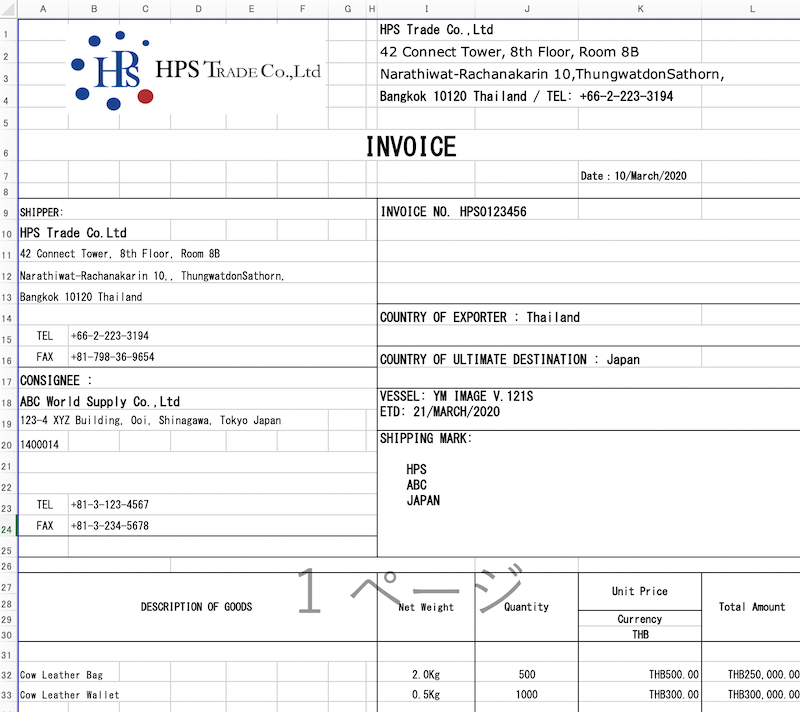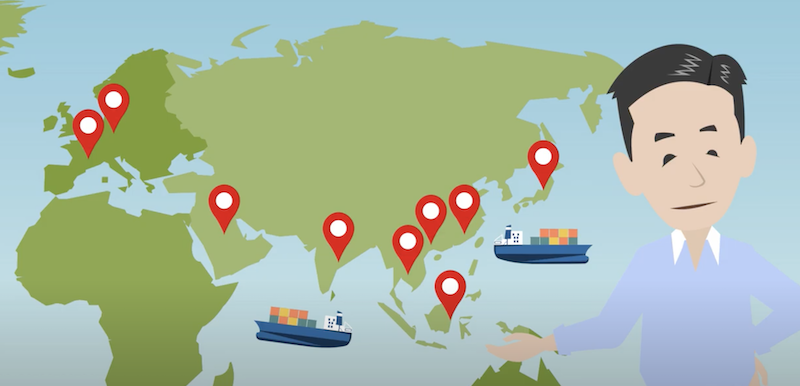
This time, let’s have a look at FOB from an exporter’s and an importer’s point.
 Senior Cat
Senior Cat Risk management and Cost are keys for the trade business!
For example, if we, an experienced trading company are importing, we will use FOB for countries which have regular trade business arrangements.
CFR is used by countries who do not have a regular trade business arrangement. It is very important to understand the meanings and the use of these two trading terms based on your business experience.
Now, we will talk about advantages and disadvantages of FOB.
Explained about FOB and FCA with Video
What’s FOB?

Firstly, let’s look at the term of FOB. FOB is a trading condition of cost and risk responsibilities that change from one side to the other, once the cargo is the deck of the vessel at the exporting port.
FOB is a short form of “Free On Board” and the “board” in this instance refers the vessel deck.
FOB means once the cargoes are on the deck of the vessel, the exporters become free from responsibility and the responsibility moves to the importers.
FOB on documents

The name of the exporting port is displayed after FOB on an invoice.
For example, “FOB TOKYO”.
“FOB TOKYO” means, once the cargo exported to Tokyo is on the deck of the vessel at the exporting port, the responsibility will move from exporters to importers.
As responsibility moves from exporters to importers, the risk to exporters is reduced.
However, it is still less responsibility for importers than EXW. FOB requires a certain level of business experience and knowledge of risk hedge method.
FOB: Exporters’ point of view
Let’s look at FOB from an exporter’ point of view.
Logistics arrangements that are required for FOB, exporters are arrangement of domestic trucks and customs clearance.
 Senior Seagull
Senior Seagull Exporter arrange “Domestics and Custom Clearance.”
For exporter’s point of view, FOB is a lighter business condition, with reduced responsibility, requiring exporters to take the responsibility up to and including the exporting port.
From this point, the shipping arrangement is entrusted to the importers.
FOB: Importers’ point of view
Now, let’s look at FOB from an importer’s point of view.
If you are importing cargoes regularly from a specific importing country, you can take advantage by using FOB.
As this will enable you to negotiate ocean freight reduction with a freight forwarder.
 Senior Cat
Senior Cat If you deal with a company that export cargoes in bulk, it is better to use CFR than FOB.
An experienced person who deals with high volumes is more cost effective and they will be able to make an arrangement smoothly.
– If importers have a lot of volume: FOB
– IF exporters have a lot of volume: CFR/CIF
Strength of Freight Forwarder

You also need to confirm that the freight forwarder you choose to deal with, has strength and experience in logistics from exporting countries.
As previously explained a freight forwarder who imports from specific countries will have more options and can make an arrangement smoothly.
Otherwise, you will need to consider changing the freight forwarder or negotiating alternative trade terms.
HPS Trade Example

For example, our company regularly imports cargoes from Japan and China to Thailand, so we have some business advantages.
However, since we do not regularly import from Africa and South America, the cost is higher and we are unfamiliar with their business practices.
In this case, we offer our customer CFR, rather than FOB to increase exporter’s benefit.
Incoterms : FCA – Free Carrier
Now let’s look at “FCA” which you should remember with “FOB”.
As explained, with FOB, cost and risk responsibilities move from sellers to buyers once the cargoes are on the deck of the vessel.
With FCA, cost and risk responsibilities move from sellers to buyers at designated place before cargos are on the deck of the vessel, it could be CY or appointed warehouse.
・FOB:on the deck of the vessel
・FCA:on CY/WH at exporting side
The benefits of FCA are that it has less risk responsibilities at the port, compared to FOB.
Summery
We checked FOB today. FOB, the responsibility move from an exporter’s to importer’s once the cargoes are on the deck of the vessel of exporting port.
It is important for both exporters and importers to understand FOB when requesting quotes and business.
When using FOB trade, you should consider advantages and disadvantages of the terms before contracting out.










